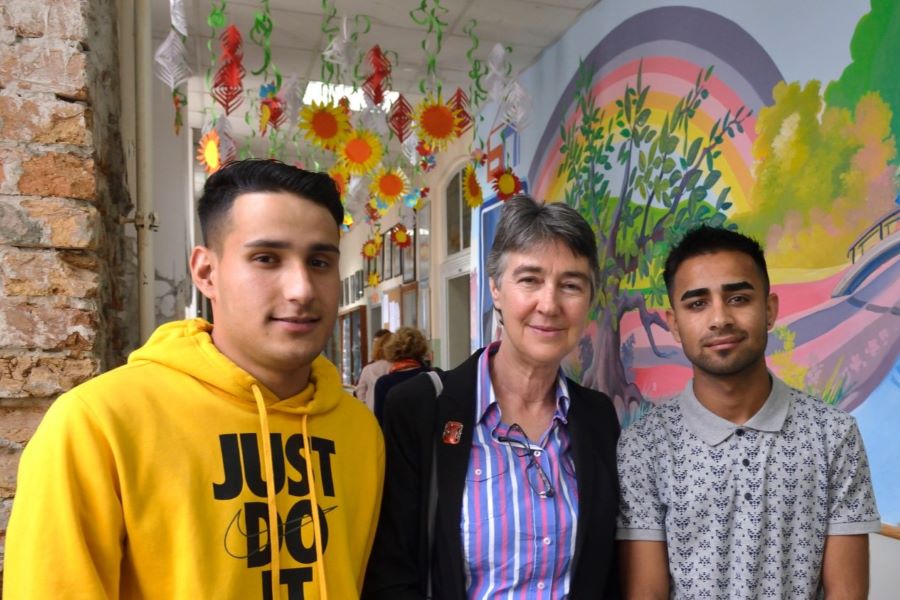
by Helen Womack | 22 Jun 2022 | Conflict, Eyewitness, Human Rights, Immigration, Refugees, Ukraine
Russia’s invasion of Ukraine has pushed the global total of refugees to over 100 million. Refugees are like you and me — but not always welcome. The author (center) with two Afghan refugees at Branko Pešić school in Belgrade, Serbia, in 2019. (Photo courtesy of...

by Nina Bugajska | 2 Jun 2022 | Economy, Educators' Catalog, Human Rights, Immigration, Realgymnasium Rämibühl Zürich, Refugees, Student Posts, Youth Voices
Immigrants around the world often face discrimination. But they can help drive economic growth and in my country are among the best educated. Protesters in Zurich demonstrate against an initiative that would limit the number of migrant workers in Switzerland, 9...
Many students have strong convictions about issues, so strong that their perspective can be clouded. So we encourage students to base their reporting on solid data and authoritative sources. In her story about immigrants in Switzerland, Nina Bugajska of Realgymnasium Rämibühl in Zurich cites a global polling company, a German data specialist, the Swiss federal statistics office and a Swiss consulting company, and she interviews a university professor, giving her a solid foundation for her look into the important role that immigrants play in Switzerland’s economy. Immigration is a topic that is easily manipulated by political demagogues, making Bugajska’s story a valuable contribution to clear thinking.
Exercise: Ask your students to choose a controversial topic and then find authoritative data, relevant to the issue, that is collected by official authorities, academics or private companies. They should then summarize what the data says about the issue.

by Katharine Lake Berz and Daneese Rao | 28 Apr 2022 | Conflict, Educators' Catalog, Human Rights, Refugees, Ukraine, University of Toronto Journalism Fellows
For more than 150 years, the Red Cross has remained neutral in wars. Today, it still defends that stance against critics as Russia ravages Ukraine. A man presses paper with a red cross on it against the windshield of a bus as civilians are evacuated from Irpin, on the...
For many people, the war in Ukraine seems one of the latest litmus tests of ideological purity: One side is good, the other side bad. So it is with politics in many countries: One side is right, the other wrong. Nowadays it can be difficult, especially for youth, to understand why diplomats speak to all sides in an armed conflict, or why the Red Cross would remain neutral in Ukraine. In their story, Katharine Lake Berz and Daneese Rao, fellows at the University of Toronto, examine why the 159-year-old Red Cross, true to tradition, has refused to condemn Russia’s invasion so it can offer aid to victims on all sides of the conflict. It’s a valuable lesson for a world hungry for harmony.
Exercise: Have your students debate this resolution: “The Red Cross should condemn Russia over its invasion of Ukraine.”
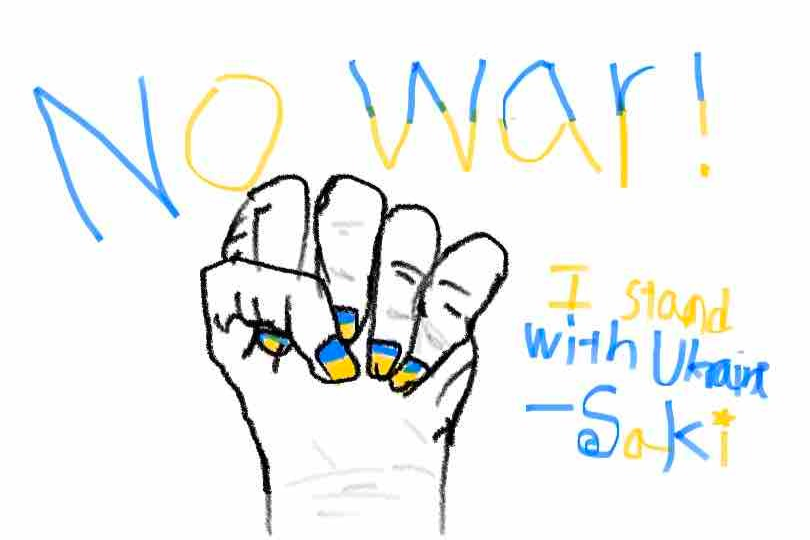
by Aralynn Abare McMane | 14 Apr 2022 | Art, Conflict, Educators' Catalog, Refugees, Ukraine
News groups around the world are encouraging children shocked by Russia’s invasion of Ukraine to turn to art as an outlet for their worries. Youth around the world are drawing pictures in an outpouring of support for the children of Ukraine. My nonprofit, Global...
The war in Ukraine has been traumatic for young people around the globe who have never seen armed conflict in Europe and who may not have followed atrocities in Syria, Yemen or elsewhere in the world. Social media platforms have broadcast terrifying images from Ukraine, and teachers have struggled to help students absorb the atrocities. Aralynn McMane, a News Decoder trustee who specializes in how news media can better serve the young, has pulled together artwork by young people inside and outside of Ukraine that channels their emotions while packing a punch. Art, and not just words, can convey complicated thoughts.
Exercise: Ask your students to draw a picture that captures their feelings about the war in Ukraine.

by Anthony Fong | 6 Apr 2022 | Conflict, Europe, Eyewitness, Immigration, Personal Reflections, Refugees, Ukraine
I’m a medic with a team helping Ukrainian refugees who are fleeing their country. Tonight, we hope we’ve given one young man a chance to survive. The author (bottom left) and colleagues from the Canadian Medical Assistant Team at the Krakovets border...
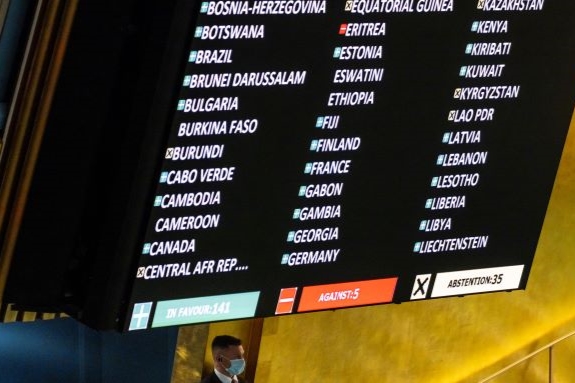
by Bernd Debusmann | 4 Apr 2022 | Conflict, Europe, Human Rights, Immigration, Refugees, Ukraine
More than two-thirds of the world’s population live in nations that have not denounced Russia’s invasion of Ukraine. Some Cold War bonds endure. A screen showing results from a vote in the United Nations General Assembly on a resolution condemning Russia’s...
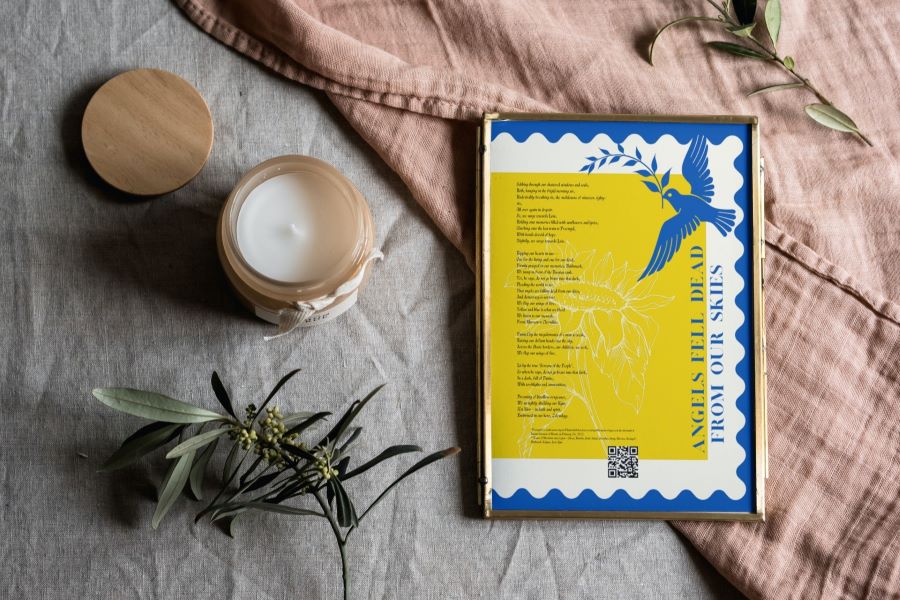
by Urvashi Bundel | 1 Apr 2022 | Art, Conflict, Europe, Human Rights, Immigration, Refugees, Ukraine
A poem by an Indian humanitarian honors refugees fleeing the destruction wrought by Russia’s invasion of Ukraine. We Flap Our Wings Of Fire Do not go brave into that dark, he saidRaising our defiant hands into the sky,We flap our wings of fire.Covered in smoke...
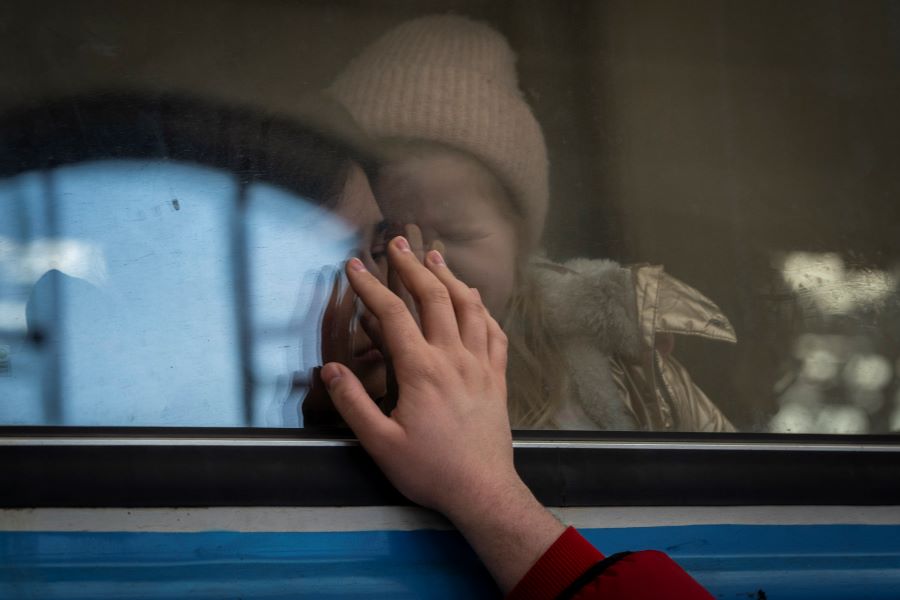
by Nela Piwonska | 31 Mar 2022 | Conflict, Educators' Catalog, Europe, Human Rights, Immigration, Realgymnasium Rämibühl Zürich, Refugees, Student Posts, Ukraine, Youth Voices
More Ukrainians have fled to Poland than any other country. Like so many Poles, my relatives are doing what they can to help. Displaced Ukrainians on a Poland-bound train bid farewell in Lviv, western Ukraine, 22 March 2022. (AP Photo/Bernat Armangue) Here’s how...
The best journalists are good listeners. They hear the words of those worth listening to, and they offer the best quotes to their audience to give voice to the protagonists of the story. Many young writers have difficulty hearing and passing along those quotes. But Nela Piwonska of Realgymnasium Rämibühl Zurich is an exception to the rule and proves it with captivating quotes from relatives in Poland who are on the front lines of Europe’s latest refugee crisis. Against a heartbreaking backdrop of families fleeing war, Piwonska manages to offer an uplifting final quote: “The only positive change in my life is the realisation of how much good is left in people.”
Exercise: Divide your students into teams of two and have them interview each other and then write stories that are based primarily on quotes.
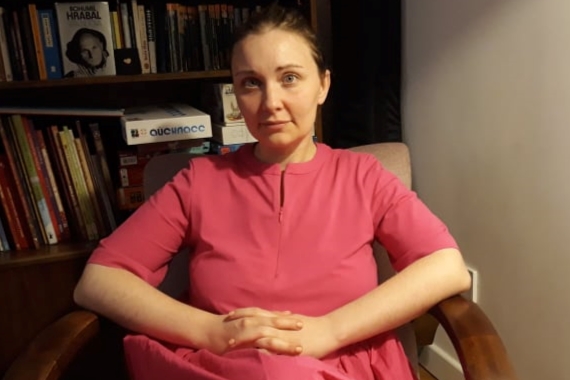
by Helen Womack | 30 Mar 2022 | Conflict, Europe, Eyewitness, Immigration, Refugees, Ukraine
Ukrainian refugees come to Anastasia in Hungary for a night or two before moving on. This Russian is helping refugees while war rages at home. Anastasia at home in Budapest, Hungary (photo by Helen Womack) Anastasia’s phone is constantly ringing. She is at the heart...

by Jeffrey Mo | 16 Mar 2022 | Conflict, Culture, Europe, Identity, Refugees, Ukraine, University of Toronto Journalism Fellows
Thousands of miles from war in Ukraine, Canadian students study the language, culture and religion of their ancestors in Eastern Europe. Protesters demonstrate against Russia’s invasion of Ukraine, in Edmonton, Alberta, Canada, 27 February 2022. (Jason...










